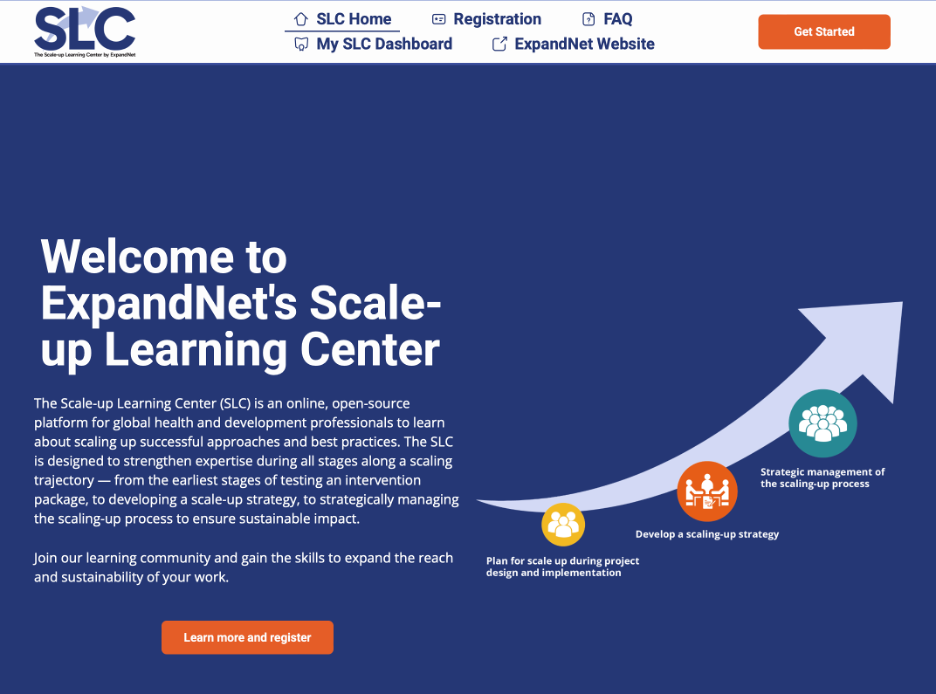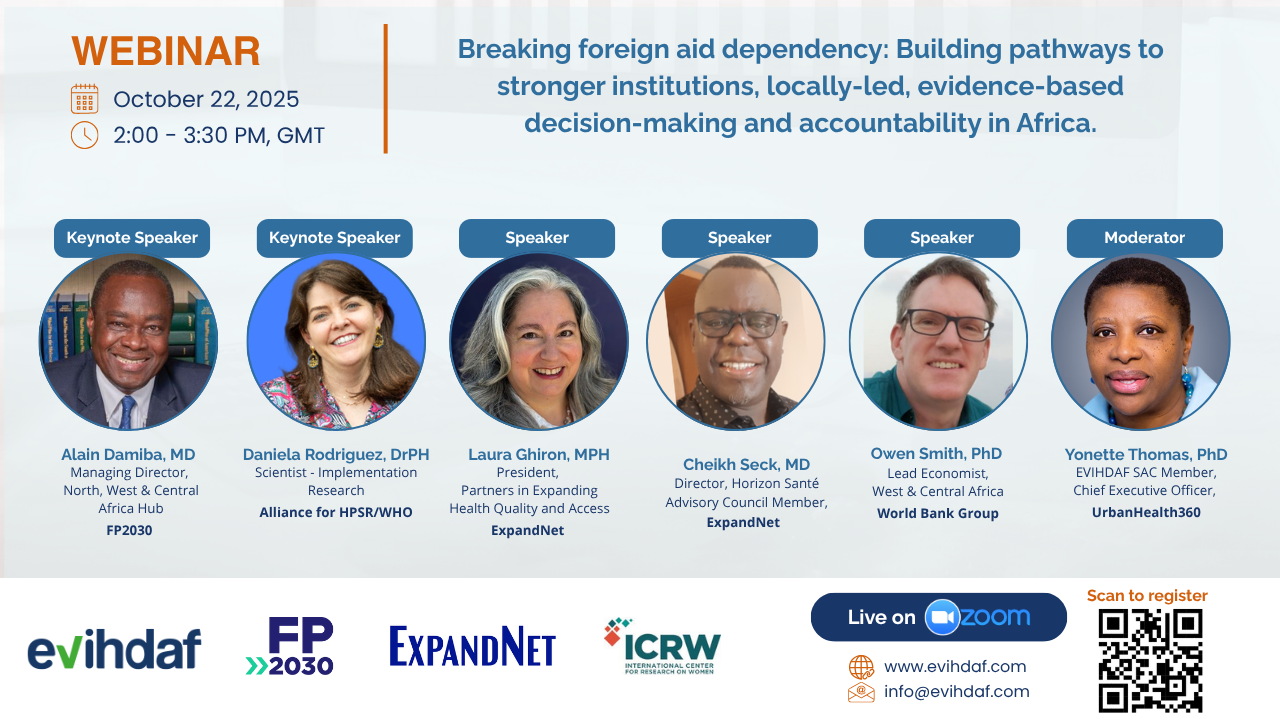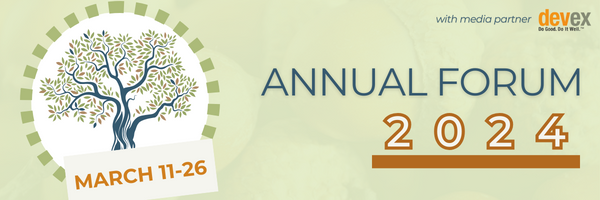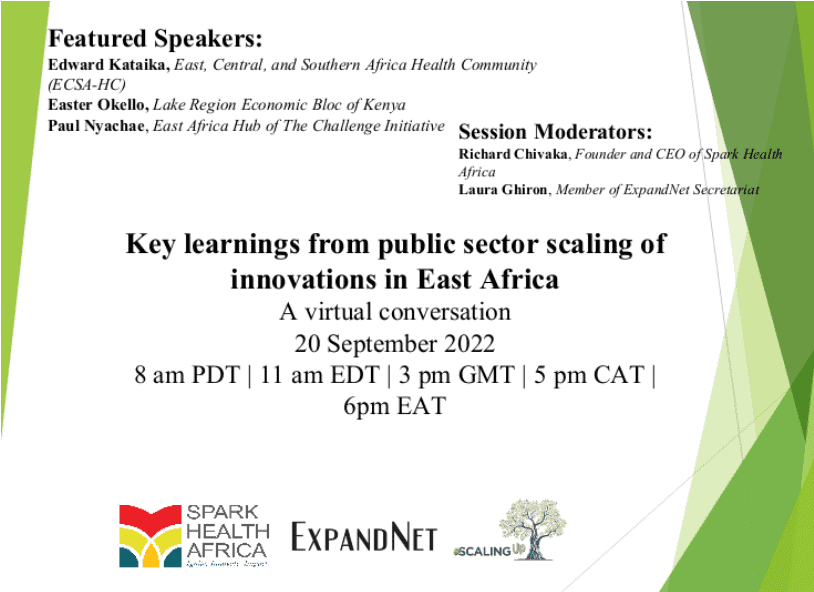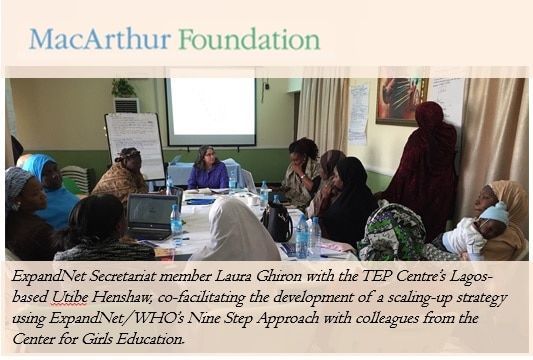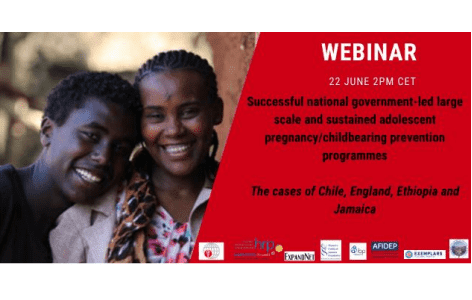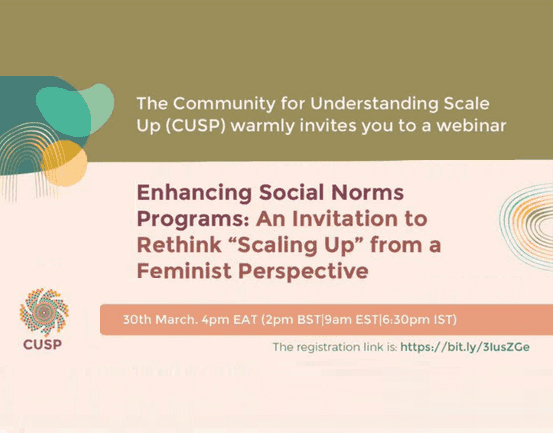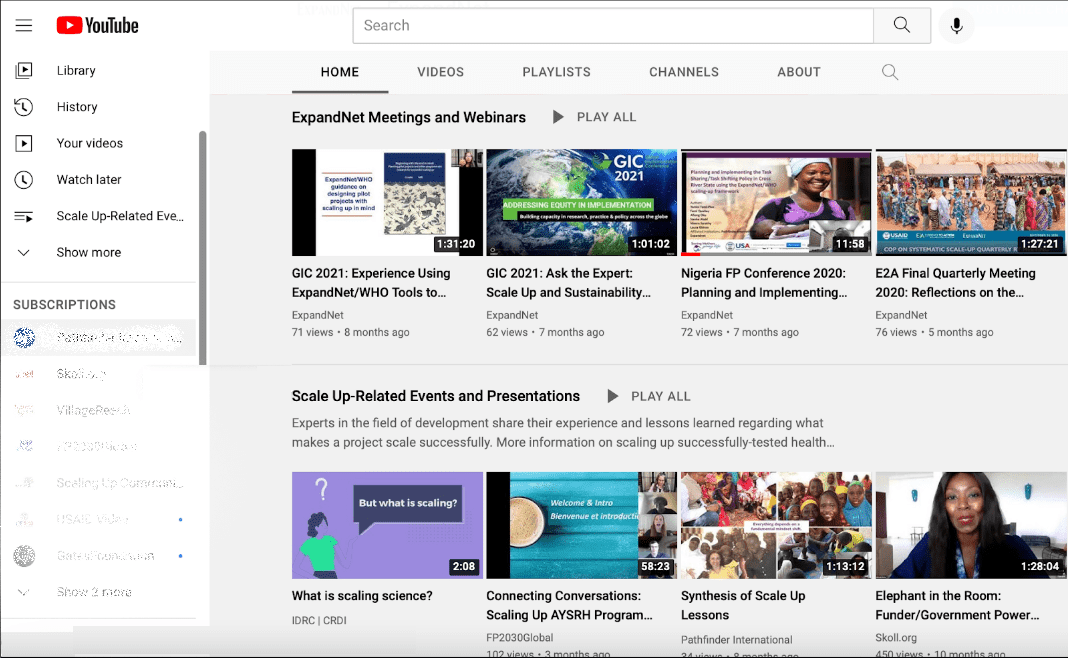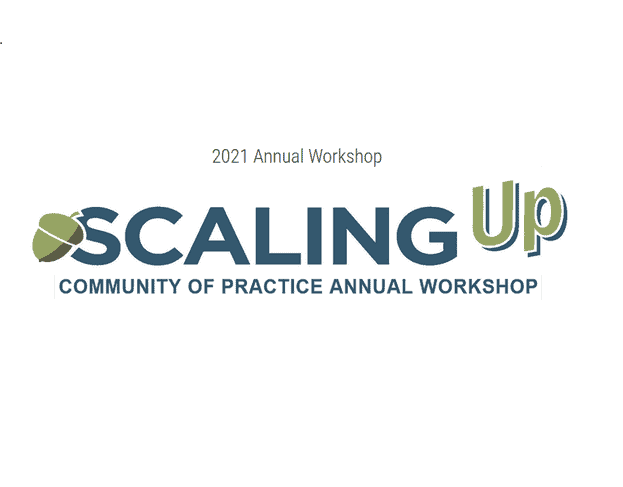News
The world faces enormous development, humanitarian, and climate challenges at the very time when traditional sources of support are suffering major cutbacks. This puts a premium on ensuring that the available financing shifts its focus from funding innovative standalone projects to increasing the capacity of governments, social enterprises, and the private sector to deliver long-term impacts that address global problems sustainably and at scale.
International development and climate funder organizations play a key role in supporting the pursuit of sustainable impact at scale, but in the past, they have in general not focused adequately on the scaling agenda. Against this backdrop, the Scaling Community of Practice launched the “Mainstreaming Initiative” in early 2023 as a three-year “action-research” effort to study mainstreaming of systematic approaches to scaling in a cross-section of organizations that fund international development and climate action. This Synthesis Report provides a comprehensive and detailed overview of the findings from 28 case studies of funder organizations. The Policy Brief presents a summary of the main findings, lessons, and recommendations.
ExpandNet’s is currently developing the Scale-up Learning Center (SLC) as an innovative, open-access, digital learning and sharing platform to strengthen scaling capacity among all global health and development professionals. The SLC curriculum is intended to build expertise to advance scaling work across all stages of the “scaling trajectory” – from the earliest stages of designing a new solution, to developing a scale-up strategy, and then for strategically managing the scaling-up process.
The SLC will offer different self-paced learning pathways, allowing learners to choose a track based on their desired level of engagement: 1) a certificate track for those seeking to complete the entire SLC curriculum, thereby gaining a comprehensive understanding of the entire scaling trajectory; 2) a self-guided track for those wanting to explore only specific topics or phases of the scaling trajectory; 3) a team track for a group of learners (e.g. from the same project or organization) to work through specific modules or the entire curriculum together in applied ways, considering the scaling issues they jointly face; and 4) a mentor track for those who wish to gain strong mastery through in-depth exposure to the full curriculum supported by a set of coaches, after which they will be can help others apply ExpandNet tools and learnings. The Mentor track has limited availability and an application is required.
SLC modules combine presentations by ExpandNet members, applied exercises, case study examples, learning questions, recorded interviews with senior scaling experts, and practical tools and resources to support applying a systematic approach to scaling up. The SLC Community-space will offer live discussions, office hours and other learning opportunities with ExpandNet facilitators and allies from around the world
With diverse features tailored to facilitate learning, collaboration, interaction, and even technical assistance, the SLC’s learning environment will help all learners be inspired on their scale-up learning journey.
To read more about the curriculum and learning tracks, visit our SLC pre-registration page.
On October 22, EVIHDAF, ExpandNet, FP2030, and the International Centre for Research on Women (ICRW) co-organized a webinar to explore important health interventions during this critical time for Sub-Saharan Africa’s health landscape. As foreign aid continues to decline, locally-led initiatives are at a pivotal moment of transition. This 90-minute webinar gathered experts in the field to involve cross-sector stakeholders, highlight proven approaches and strategic pathways, discuss mobilizing domestic resources, and strengthen accountability. Click the link below to listen to the webinar recording.
Featured speakers:
Alain Damiba, MD, MPH, MBA – Managing Director, FP2030 North, West, and Central African Hub
Yonette Thomas, PhD – Chief Executive Officer, UrbanHealth360 | EVIHDAF 360 Member
Daniela C. Rodríguez, DrPH – Scientist, Alliance for HPSR/WHO Implementation Research
Laura Ghiron, MPH – President, Partners in Expanding Health Quality and Access | Member, ExpandNet Secretariat
Cheikh Seck, MD, PHS – Director, Horizon Sante | ExpandNet Advisory Council Member
Owen Smith, PhD – Lead Economist, World Bank Group, West & Central Africa
Video Recording: Link, Audio Recording: Link
………………………………………….
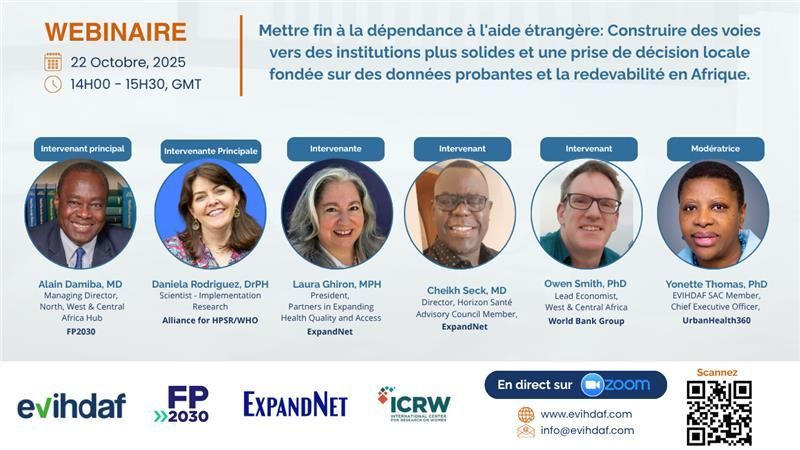
The 2024 Annual Forum of the Global Community of Practice on Scaling Development Outcomes (Scaling CoP) was held virtually from March 11th – 26th. This year’s Forum consisted of 12 sessions, including three plenary sessions focusing on cross-cutting issues and nine sessions on sectoral and thematic areas related to scaling organized by the CoP’s sectoral and thematic working groups.
The Health Technical Working Group – chaired by representatives from ExpandNet and the Bill and Melinda Gates Foundation – organized a timely and thought-provoking session about navigating ethical considerations in supporting scale up of health interventions. The session recording is available here.
To access to all this year’s Forum recordings as well as the recordings from prior annual meetings, please visit the Scaling CoP’s YouTube channel here. To view working papers, access past newsletters that contain cutting edge work of members, and/or to join the CoP and whichever working groups you may wish, please visit the Scaling CoP website here.
Planning for scaling should be accomplished with the end in mind, and scaling actors should adopt a mindset for scale. These were two of the takeaways from the 20 September webinar cosponsored by ExpandNet and Spark Health Africa. The session, entitled Key learnings from public sector scaling of innovations in East Africa, brought together speakers from government and implementing partners to share their organizational experience with scaling public health and educational interventions.
The following featured speakers presented valuable experiences and insights about scaling up:
Edward Kataika, The East, Central, and Southern Africa (ECSA) Health Community
Easter Okello, Lake Region Economic Bloc (LREB) of Kenya
Paul Nyachae, The East Africa Hub of The Challenge Initiative (TCI)
The panel was moderated by Dr. Richard Chivaka, Founder and CEO of Spark Health Africa, and Laura Ghiron, Member of the ExpandNet Secretariat.
You can stay up to date about future events with Spark Health Africa by joining the Learning Network on Scaling Innovations in the Public Sector Across Sub-Saharan Africa, an initiative between Spark Health Africa and VillageReach. Additionally you are welcome to join the Community of Practice on Scaling Development Outcomes, where ExpandNet leads the Health Technical Working Group which co-sponsored the event.
The recording of the 90-minute webinar can be viewed at this link.
Reflecting on 18 years of MacArthur Foundation support to ExpandNet: The MacArthur Foundation’s Population & Reproductive Health team featured a recent blog with an interview with ExpandNet Secretariat member Laura Ghiron to discuss the network’s history, legacy and future directions. The Foundation has been a critical and steadfast champion of ExpandNet’s work since its inception in 2003 when the process of scaling up was less-widely discussed. The post in MacArthur’s Population & Reproductive Health News features written excerpts and a video from a much longer interview, and includes a few photos of ExpandNet work across development sectors over the past 18 years of MacArthur Foundation support.
ExpandNet co-sponsored a webinar on 22 June to highlight how four countries have managed to dramatically reduce adolescent pregnancy over the past 20 years by successfully scaling up tested interventions.
In the years following the 1994 International Conference on Population and Development, remarkable progress has been made on adolescent sexual and reproductive health. Many countries have implemented and sustained programs at a large scale with demonstrated successes. The experiences of Chile, England, Ethiopia and Jamaica were showcased in the 95-minute webinar co-hosted with the World Health Organization, Medicus Mundi Switzerland, the African Institute for Development Policy, Exemplars in Global Health, the Geneva Foundation for Medical Education and Research, the Women’s Center of Jamaica Foundation, and the IBP network.
The following speakers (in order of appearance) provided insight into how the four countries put the reduction of adolescent pregnancy and child bearing on their national agendas, outlined steps taken to address the most vulnerable girls/young women, and delineated how each country scaled up and sustained their programs:
Alison Hadley Obe, Director, Teenage Pregnancy Knowledge Exchange, Faculty of Health and Social Sciences, University of Bedfordshire
Lemessa Oljira, Team Leader, Adolescent and Youth Health Research Advisory Council, Federal Ministry of Health of Ethiopia
Zoe Simpson, Executive Director, Women’s Centre of Jamaica Foundation
Fernando Gonzalez, Director, Department of Prevention and Disease Control, Ministry of Health, Chile
Nandita Thatte, Technical Officer, Department of Sexual & Reproductive Health & Research, IBP Secretariat, World Health Organization
Naa Dodua Dodoo, PhD, Senior Research and Policy Analyst, African Institute for Development Policy (AFIDEP)
Venkatraman Chandra-Mouli, World Health Organization, Human Reproduction Programme
Laura Ghiron, President, Partners in Expanding Health Quality and Access and Member of the ExpandNet Secretariat
The webinar was facilitated by Carine Weiss, Gender and Youth Team Lead of HIV Prevention Branch, Medicus Mundi Switzerland.
Please access the recording and links to accompanying resources at this link on the Medicus Mundi website.
According to the Community for Understanding Scale Up (CUSP), a feminist perspective implies that we must “recognize the strength of ‘working with communities’ and not ‘working for or on communities,’” and that these suggest profoundly different approaches. Formed from eight organizations that work across several regions on scaling gender-based social norms-shifting approaches, in a webinar on March 30 at 4 pm EAT/9 am EDT, CUSP members will present their recent publication, Enhancing Social Norms Programs: An Invitation to Rethink “Scaling Up” from a Feminist Perspective.
Key learnings from this document include an analysis of metaphors used to describe growth and expansion. Scaling up, CUSP argues, has connotations in the business world that often lead to a focus on quantifying organizational structures and packaged components, and risks overlooking the principles often needed for structural change. The preferable Growth in an ecosystem, by contrast, fosters collaboration across power and place and emphasizes solidarity, shared analysis and vision, with nimble evolving processes that emphasize learning, according to the document.
From 2020 to 2021 CUSP analyzed and described characteristics of expansion and adaptation that are consistent with a feminist approach, and synthesized their conclusions in a 57-page publication. ExpandNet Secretariat and CUSP Member Dr. Rebecka Lundgren published a blog about the publication, available at this link.
Laura Ghiron, of the ExpandNet Secretariat, will provide remarks during the webinar. To register and join the conversation, please register using this link: https://bit.ly/3IusZGe.
In case you would like to take advantage of one of ExpandNet’s prior online learning opportunities and catch up on recent developments in the field of scaling up, we have assembled a variety of videos for viewing in two places. The first place is ExpandNet’s new YouTube video channel which hosts recordings of scaling up content from conferences and webinars over the last couple of years, as well as a “playlist” of additional scale-up related content uploaded by allied organizations. All of our videos are also now on a dedicated Videos page on the ExpandNet website.
The nexus of scaling and systems change; institutionalizing a scale up focus within government and donor agencies, and identifying principles of scale up across disciplines; these were some of the themes of the November 2021 workshop of the Community of Practice on Scaling up Development Outcomes led by Larry Cooley and Johannes Linn.
The annual workshop was held online for the second year in a row and consisted of three cross-sectoral plenaries and nine technical working group sessions, including Health’s, between November 8-23, 2021.
The Health Technical Working Group facilitated a lively conversation on mainstreaming a scaling focus within nongovernmental, technical, and implementing organizations. Key lessons were discussed, including creating a shared vision with those intended to adopt the interventions on a wider scale, incorporating attention to scale up from Day 1, and developing a scale up mindset across partnerships.
The objective of the workshop was to come away with key takeaways for developing the CoP program of work for 2022 and beyond.
The purpose of the Scaling CoP, which now has more than 1200 members, is to bring together experts and practitioners interested in scaling the impact of development interventions, to professionalize the field of scale up and to exchange experience and share knowledge about what works for scaling across sectors.
To join the Scaling Community of Practice and to gain access to the annual meeting recordings, view working papers and access past newsletters that contain cutting edge work of members, please visit this page.



